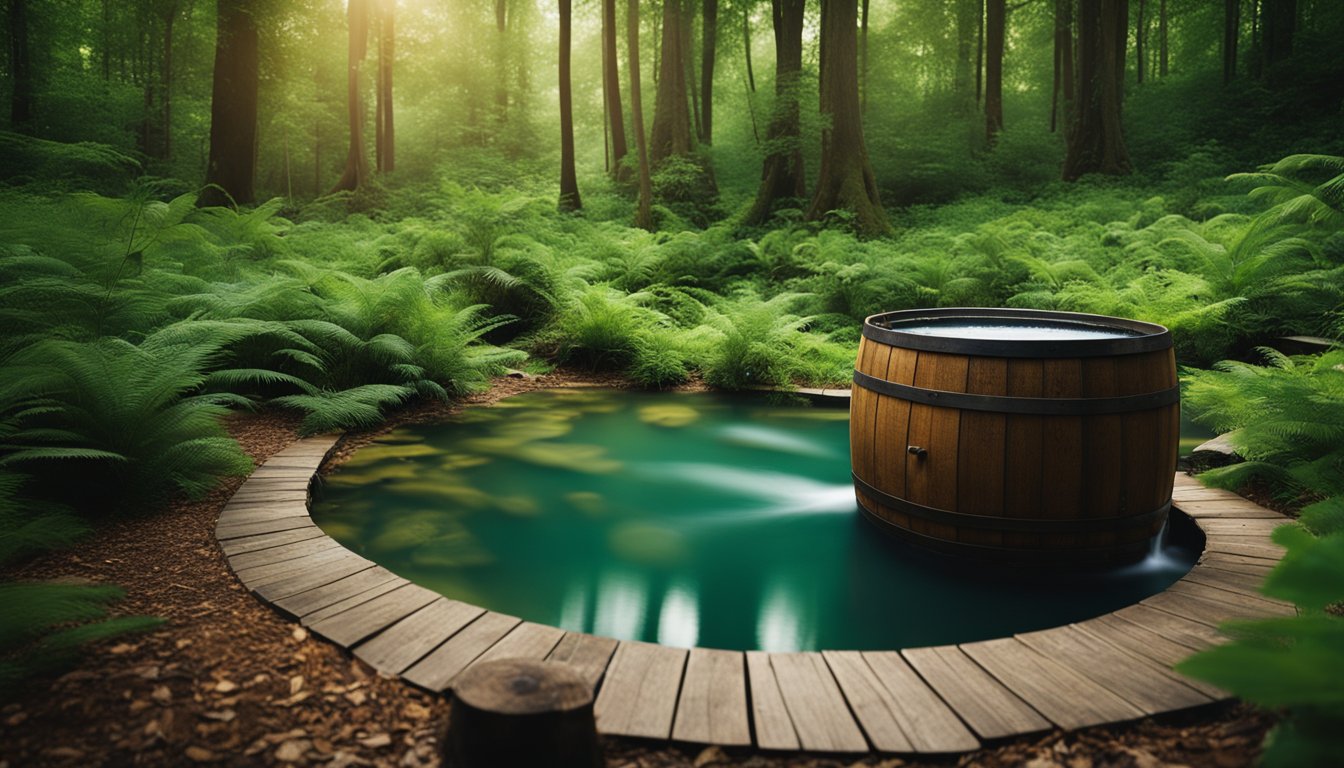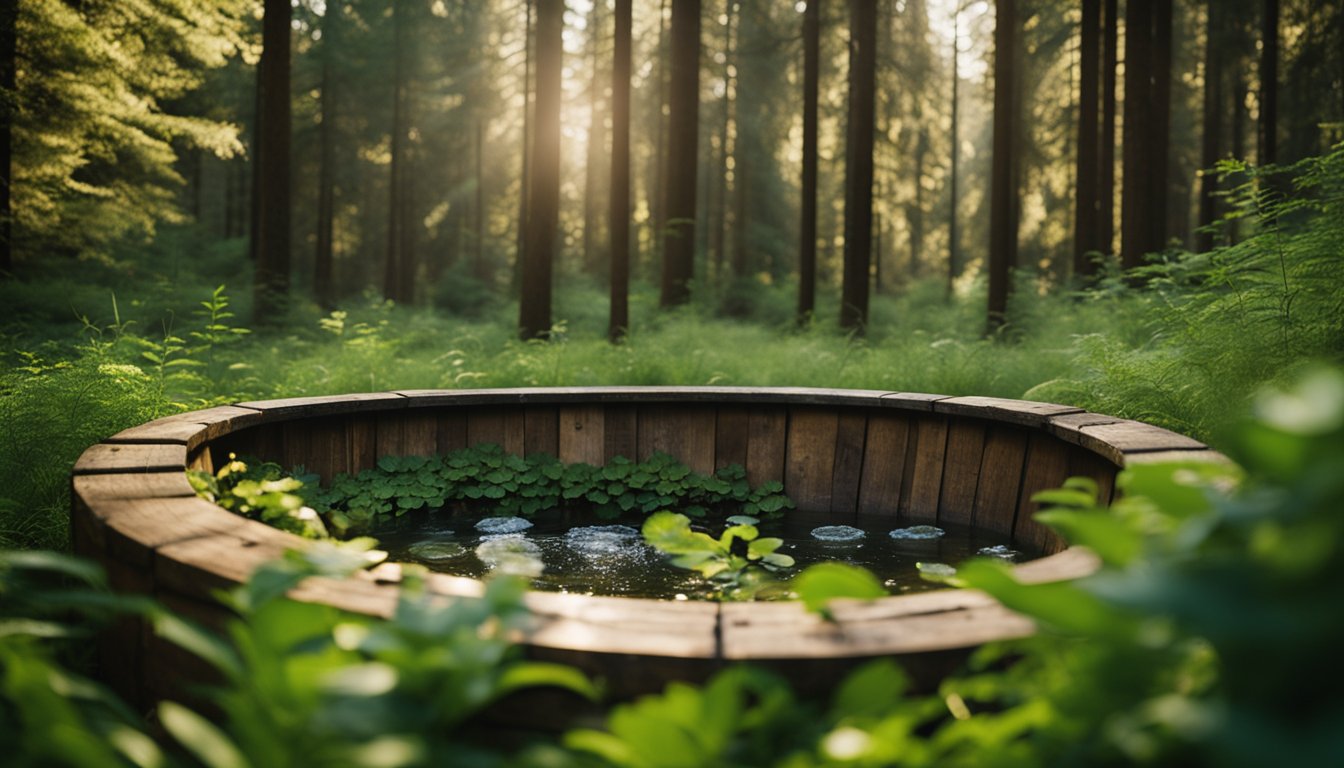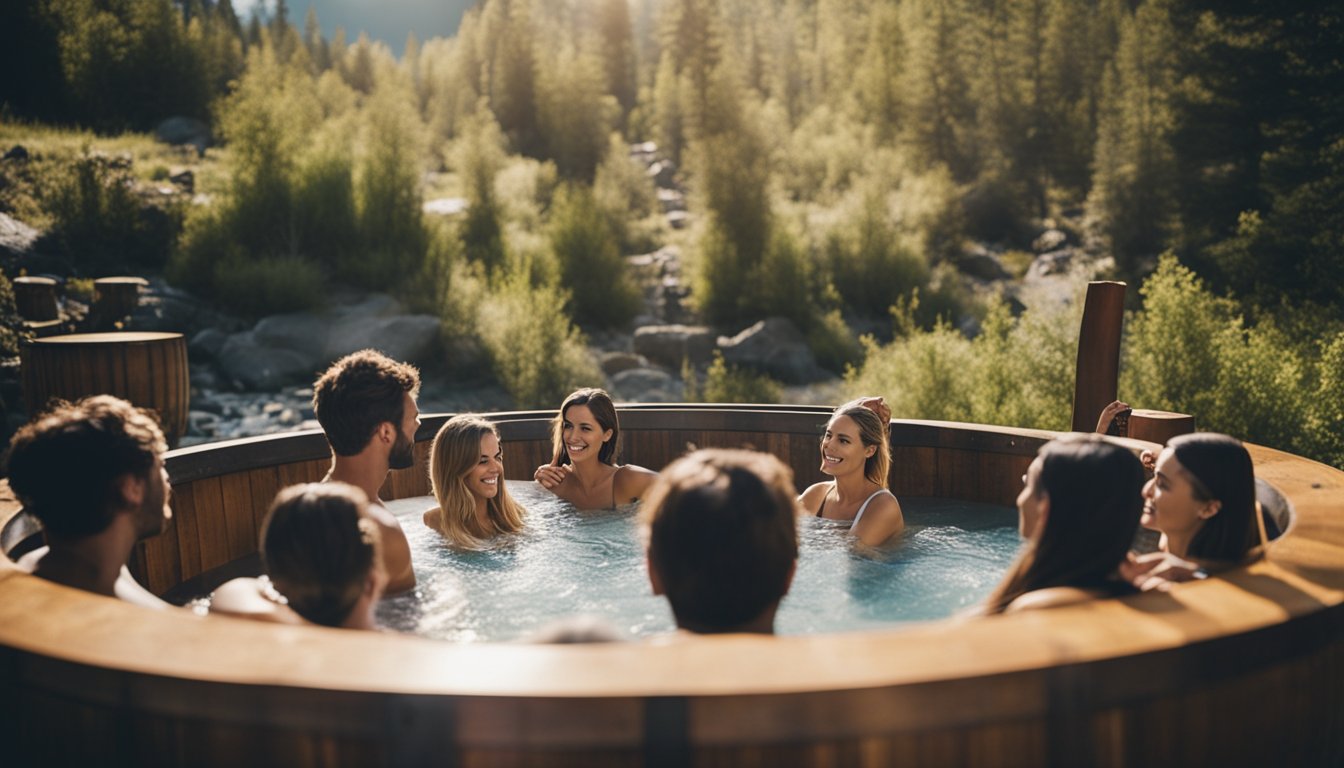Late updated: 09 Feb 2025 14:02
Written by: James Whitaker
Exploring Offbeat Alternatives to Traditional Hot Tubs: Creative Solutions for Relaxation
Looking for ways to unwind without the commitment of a traditional hot tub? Exploring offbeat alternatives can offer fresh solutions that blend relaxation with convenience and style. From inflatable options to DIY projects, there are plenty of choices that cater to unique spaces and budgets. Embracing these alternatives allows us to enjoy the soothing benefits of a hot tub without the typical expenses or space requirements associated with permanent installations.

Among the innovative options, inflatable hot tubs stand out for their affordability and easy setup. These portable solutions are perfect for those who desire flexibility without sacrificing the spa-like experience in their homes. Additionally, repurposed items like horse troughs offer rustic charm and serve as creative DIY projects that add a personal touch to outdoor settings.
With each alternative comes an array of unique benefits and some considerations to keep in mind. It’s essential for us to evaluate our preferences, space availability, and budget when making a choice. Ultimately, these unconventional hot tub solutions provide a personalised approach to relaxation and well-being, making it easier for everyone to achieve a slice of spa bliss in everyday life.
Key Takeaways
- Unique hot tub alternatives offer relaxation without the commitment.
- Options like inflatable tubs provide flexibility and cost-effectiveness.
- Consider space, budget, and preferences when selecting an option.
Innovative Alternatives to Traditional Hot Tubs

Exploring offbeat options for hot tubs can provide both practical and environmental benefits. Various alternatives cater to different preferences, whether it's ease of installation, eco-friendliness, or technological advancements.
Inflatable Hot Tubs and Soft Tubs
Inflatable hot tubs and Soft Tubs offer a flexible and cost-effective solution. These tubs are simple to set up, making them ideal for those with limited space such as balconies or small gardens. Available in various sizes, they can accommodate different numbers of users. Portability is a major advantage, allowing us to move them as needed or even take them on trips.
Inflatable hot tubs are typically made of durable PVC, offering similar features to traditional hot tubs, including jets and variable temperatures. Soft Tubs, meanwhile, are known for being energy-efficient and lightweight, constructed with foam padding for comfort. Both options generally cost less than traditional models, providing an economical yet luxurious experience.
Eco-Friendly Options: Stock Tank and Dutchtub
For those prioritising sustainability, stock tanks and Dutchtubs are outstanding choices. Stock tanks, originally designed for agricultural use, offer a rustic yet charming appearance. Made of galvanised steel or plastic, they require minimal maintenance and can be heated using gas, wood, or solar options. This adaptability makes them versatile and eco-friendly.
Dutchtubs, on the other hand, are wood-fired, offering a more authentic and natural hot tub experience. Their design is sleek and unique, often crafted from durable composite materials that retain heat efficiently. Whether nestled in nature or in a modern garden, these tubs blend seamlessly with the environment, making them a popular eco-friendly option.
High-Tech Solutions: Bathtub Massage Mats and Infrared Saunas
High-tech solutions such as bathtub massage mats and infrared saunas cater to those seeking advanced features in compact forms. Bathtub massage mats are simple yet effective, easily fitted into any standard tub. They provide bubble massages through air jets and vibration settings, transforming a regular bath into an indulgent spa experience.
Infrared saunas utilise radiant heat to offer health benefits like improved circulation and skin health. Their compact cabin design makes them suitable for indoor installation, unlike traditional saunas. With user-friendly controls and lower power consumption, infrared saunas offer a modern twist on classic hydrotherapy, perfect for relaxation and wellness in our homes.
Benefits and Considerations

When exploring alternatives to traditional hot tubs, there are several benefits and considerations to take into account. These options offer unique health advantages, efficiency benefits, and considerations regarding space and installation that may suit different needs.
Health and Relaxation Advantages
Alternative hot tubs can provide significant health benefits akin to those of traditional models. Hydrotherapy, known for its relaxing properties, can aid in stress relief and promote overall well-being. These alternatives, particularly portable options like Softubs, often include ergonomic seating that enhances the hydrotherapy experience.
Features promoting luxurious relaxation, such as adjustable jets and soothing heat, also facilitate pain relief. These features can be especially beneficial for individuals with muscular or joint discomfort, offering therapeutic benefits in the comfort of one's own space.
Energy Efficiency and Consumption
Energy consumption is a crucial factor when weighing the options between traditional hot tubs and their alternatives. Many alternative hot tubs are designed with energy efficiency in mind, using less power due to their compact size and advanced heating technology. Some models even feature energy-efficient heaters and covers that retain heat, which further reduces electricity usage.
In addition, prioritising energy efficiency not only lowers utility bills but is also more environmentally friendly. With the advent of solar-compatible models, users can further diminish their carbon footprint while enjoying the conveniences of a hot tub.
Space and Installation Implications
Space limitations are a vital consideration when opting for a functional hot tub. Unlike traditional hot tubs that require significant space and often permanent installation, alternatives such as inflatable or portable tubs offer greater flexibility.
Such models can fit into smaller spaces like balconies or small gardens. Installation tends to be straightforward, without the need for extensive plumbing or groundwork. This ease of setup makes them suitable for those who rent or lack ample outdoor space. Given their lighter weight and design, moving and repositioning these tubs is generally feasible, making them a convenient choice for many.
Frequently Asked Questions

Exploring alternative hot tubs offers creative and varied options for outdoor relaxation. We can look at innovative choices and DIY methods. Heating methods and unique setups also provide diverse experiences.
What are some innovative alternatives to conventional hot tubs for outdoor relaxation?
One noteworthy option is the Softub, which provides portability and ease of setup. Inflatable hot tubs are also gaining popularity due to their affordability and space efficiency. Horse troughs, when repurposed, offer a rustic charm, adding character to any garden or patio area.
How can one build a DIY soaking tub in their garden?
For a DIY project, repurposing horse troughs or repurposing stock tanks can be an economical choice. Building a wooden hot tub can also be an engaging project. It may involve using cedar or redwood for durability and aesthetic appeal.
What are affordable options for heating an outdoor soaking tub?
For cost efficiency, one option is to use energy-efficient electric immersion heaters. Solar covers can also retain heat, reducing energy expenses. Wood-burning stoves provide an economical way of maintaining heat, adding to the experience with natural aromas.
Could you provide guidance on installing a Japanese-style soaking tub outdoors?
Japanese-style soaking tubs, or ofuro, often require a customised approach. They are typically smaller and deeper, focusing on relaxation. Ensuring proper drainage and using durable materials like cedar can enhance both functionality and aesthetics in outdoor settings.
What are the advantages of opting for a stock tank hot tub over a traditional one?
Stock tanks present an inexpensive yet functional alternative for outdoor soaking. These tubs are known for durability and ease of installation. Maintenance is straightforward, and their simplicity can blend well with rustic or modern garden designs.
Can you explain the concept of a floating hot tub and how it differs from standard models?
Floating hot tubs offer a unique experience on water bodies, such as lakes. Unlike standard models, they combine the buoyancy of a boat with the relaxation of a hot tub. This provides a novel way to enjoy natural surroundings while soaking.
